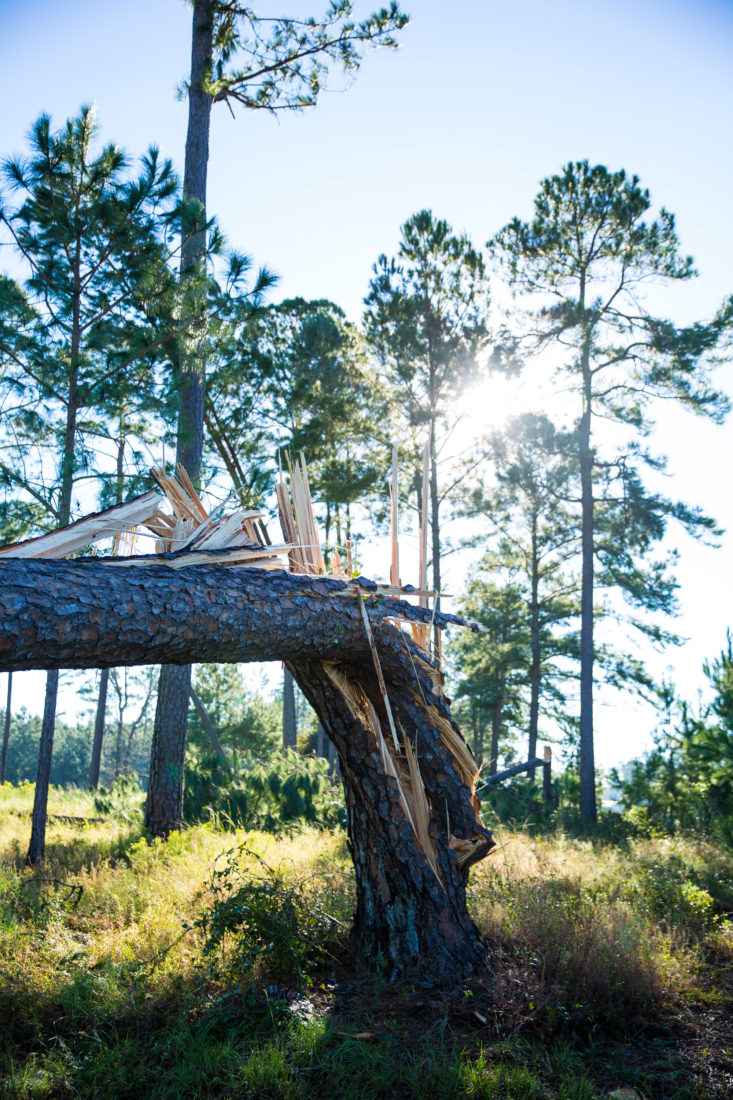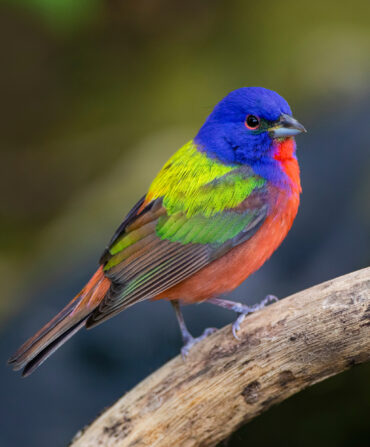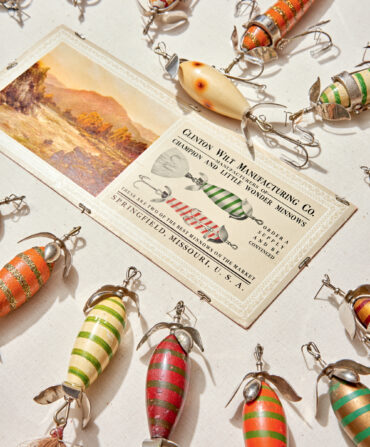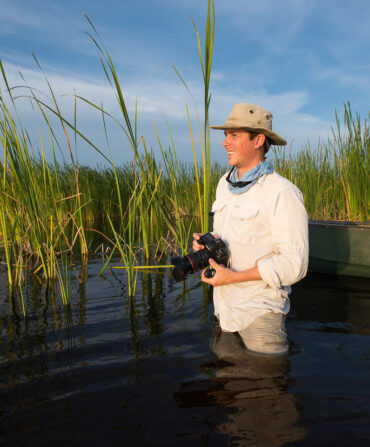Hurricane Michael’s fury was well documented by news reports of the tragic damage along the Florida Panhandle coast. But after the storm ravaged Gulf beaches, it moved north into hallowed Southern quail hunting country. The brunt of the storm skirted to the west of the famed Red Hills region between Tallahassee, Florida and Thomasville, Georgia, arcing toward the Albany quail plantation belt, which comprises about a half-dozen counties south of Albany, Georgia, and is known as a stronghold for wild quail. Along its path it pounded pine forests that had been carefully stewarded for decades. Many plantations lost 50 percent or more of their soaring conifers.
Michael’s eye passed just a few miles west of Georgia’s Pine Hill Plantation, an Orvis-endorsed and Beretta-Trident-certified lodge that offers classic horseback and mule-drawn wild bird hunts. “There were 115 mile-per-hour straight-line winds in Donalsonville, twenty miles north of here,” says Doug Coe, the plantation’s owner. “Honestly, we’re lucky things weren’t worse.” The roofs on two of Pine Hill’s four lodges will have to be replaced, but structurally, the buildings are fine. Still, Coe says, there’s a lot of downed timber.
That’s the story across the area: A general sigh of relief that plantation lodges were largely spared debilitating structural damage, but grieving over the pummeling meted out to these ancient and famed pine savannahs.
“Some of these plantations will take generations to recover,” says Jon Kohler, a leading plantation broker in the Red Hills region. “There are financial losses—unbelievable losses in some places. But it’s the years of diligence and the hard work these owner-stewards put into their properties that make the losses so painful. It’s hard to see our friends who have such a passion for the land face the challenges of the next few years.”
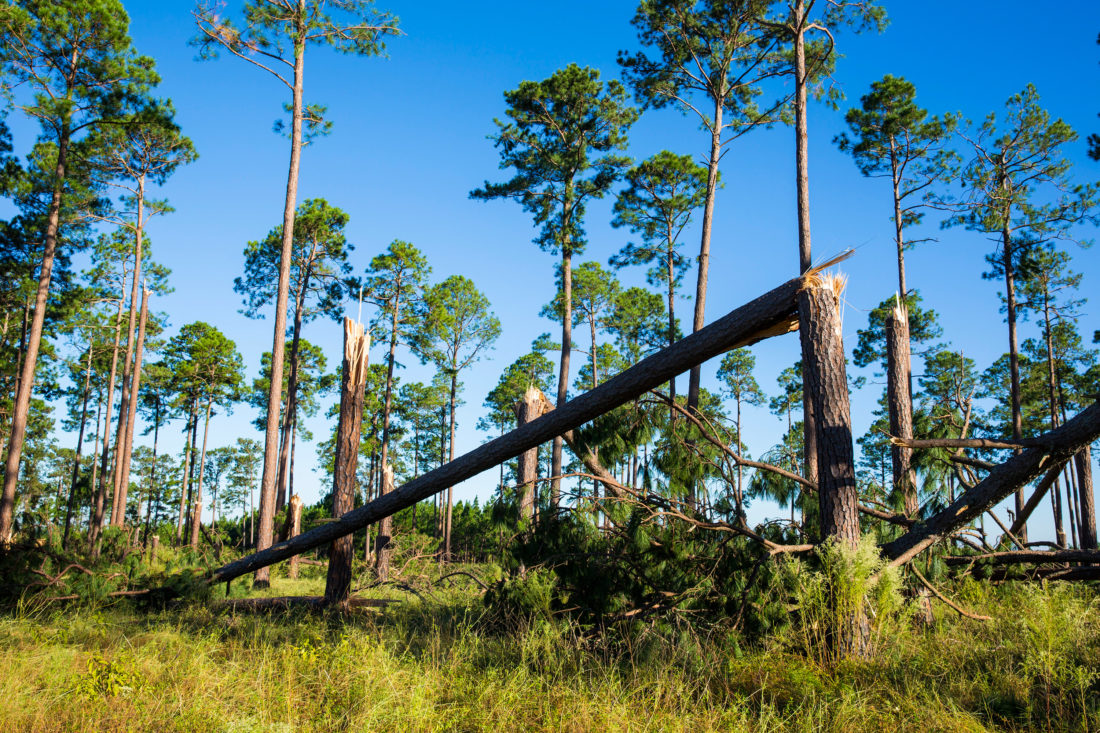
Photo: Michael-Gabriel Hanway
Downed and broken trees in a South Georgia pine savannah.
For hunting outfitters such as Coe, the challenge of the next few months is top of mind. Pine Hill Plantation already has several timber crews at work, removing downed trees around structures and from roads and the miles of hunting paths that lattice the property. As for the birds, at Pine Hill Plantation, hunters mostly gun for wild quail, which have evolved with hurricanes, wild fires, and other natural challenges. “They are survivors,” Coe says. “They tunnel down in the thick mats of native wiregrass and hunker down. We have an abundant gopher tortoise population as well, and the birds will head to the den burrows in heavy weather, just like they do when there’s a fire.”
Bill Palmer, the president and CEO of the quail research facility Tall Timbers, reports that the three quail plantations in the area whose birds Tall Timbers monitors with radio-telemetry devices remain healthy. “The quail fared fine,” he says, “and that’s something to be thankful for. We didn’t have the thirty inches of rain of Hurricane Florence, which really hurts these birds. But it’s terrible timing, coming right here at the beginning of the hunting season.”
Coe expects Pine Hill Plantation to be up and running in ten days or so, and he’s not overly concerned about cancellations. Most of his hunters are repeat customers, and his phone and email have been burning up with clients who tell him they are still hunting Pine Hill, hurricane or no hurricane, and could he let them know what they can do to help.
Which they’ll be doing already, just by packing their bags. “Get down here and hunt,” Coe says, of the needs the area’s hunting lodges face short-term. When it comes to hurricane relief work, that’s about as good as it gets.
More on Michael:
>> Dispatch from St. Marks, Florida
>> A fishing guide sees devastation first-hand in Mexico Beach


